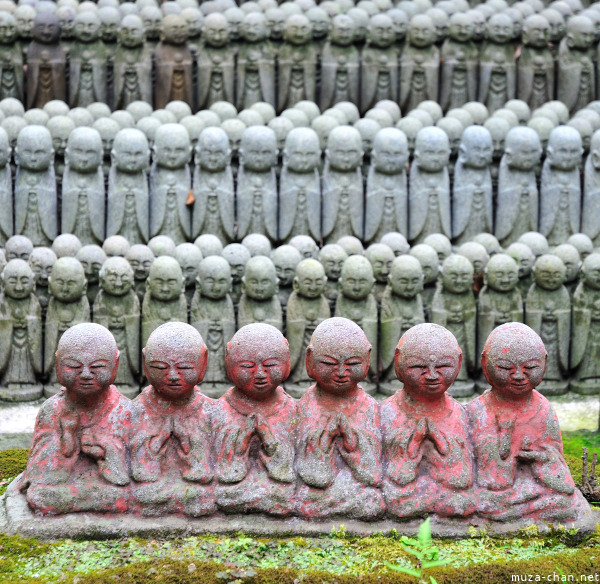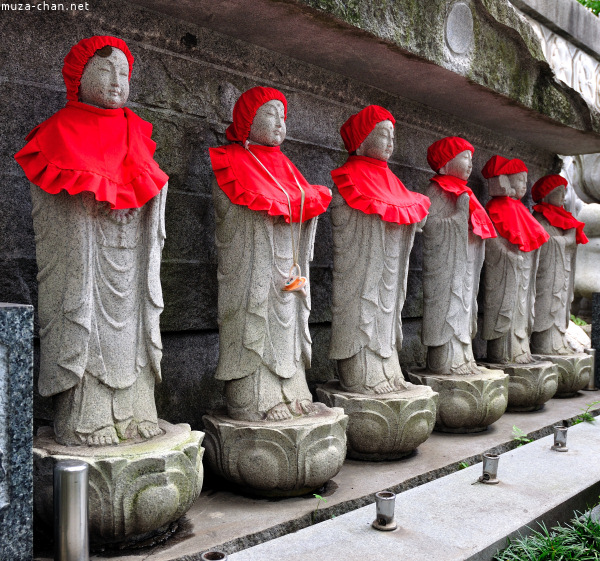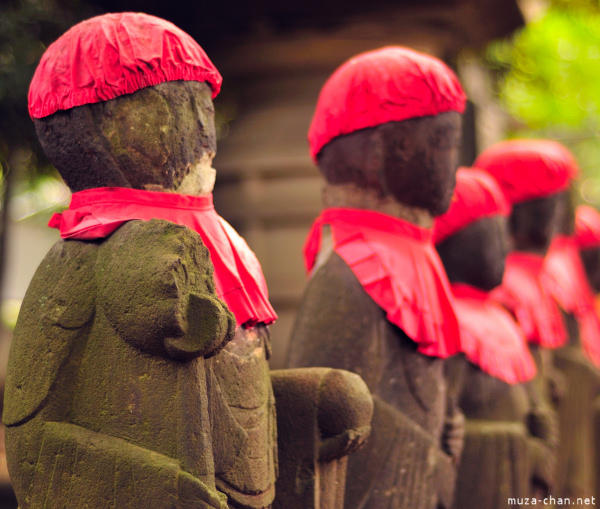One of the most beloved Japanese deities is Jizo, a Bodhisattva (Bosatsu in Japanese), known in Japan as O-Jizo-Sama or Jizo-san, considered patron of children, expectant mothers, firemen, travelers, pilgrims and aborted or miscarried babies.

In Buddhism, it is considered that all living beings are born into one of the six states of existence (Samsara in Sanskrit, the cycle of life and death). All beings within these six realms are doomed to death and rebirth in a recurring cycle, unless they can break free from desire and attain enlightenment.

Jizo Bosatsu vowed to relieve the suffering souls in each of the six realms of existence and this is the reason why Jizo are often represented in groups of six (Roku Jizo), each of the six Jizo assigned to one of the six realms.

The most beautiful story about the Six Jizo is Kasa Jizo (Jizo with braided hats).
Once upon a time, there lived and old man and his wife. At the end of the year, the old man went to sell braided hats since they had no food to celebrate New Year.
Unfortunately, the old man could not sell a single hat. On this way home, he found six Jizo that had been snowed. He covered the heads of the Jizo with the hats he carried and as he had only five hats, he gave to the last Jizo the hat was wearing.
When he returned home, he told his wife that he failed to sell a single hat and instead, had put them on the heads of six Jizo. The old woman approved him and said: “You did a good thing.”
At night, while they were sleeping, they heard heavy thuds outside the house. They went out and saw that six Jizo wearing braided hats were leaving after putting a lot of rice and food at the doorstep. Thanks to the food brought by the six Jizo, the old man and his wife had a happy New Year.

